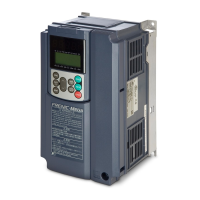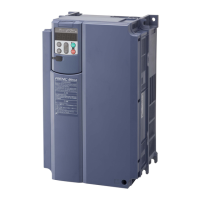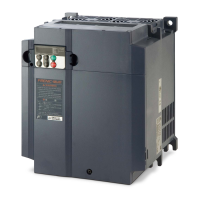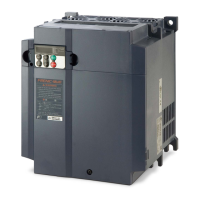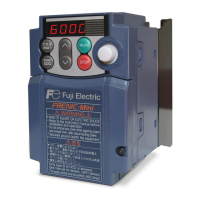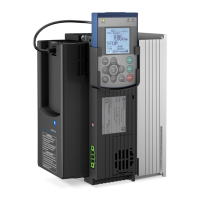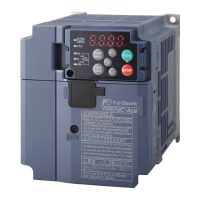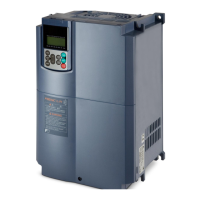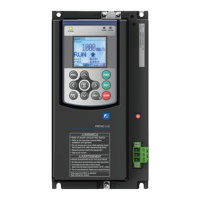5.3 Description of Function Codes 5.3.1 F codes (Fundamental functions)
Braking response mode (H95)
H95 specifies the DC braking response mode.
Slow response. Slows the rising edge of
the current, thereby preventing reverse
rotation at the start of DC braking.
Insufficient braking torque may result at the
start of DC braking.
Quick response. Quickens the rising edge
of the current, thereby accelerating the
build-up of the braking torque.
Reverse rotation may result depending on
the moment of inertia of the mechanical
load and the coupling mechanism.
It is also possible to input DC braking command “DCBRK” by using an external digital input signal as the
terminal command. As long as the DCBRK is ON, the inverter performs DC braking, regardless of the
braking time specified by F22.
( Refer to function code E01 to E09 (data =13) for details on “DCBRK”)
Turning the “DCBRK” ON even when the inverter is in a stopped state activates the DC braking. This
feature allows the motor to be excited before starting, resulting in smoother acceleration (quicker build-
up of acceleration torque) (under V/f control).
In general, specify data of function code F20 at a value close to the rated slip frequency of motor. If an
extremely high value is set, control may become unstable and an overvoltage alarm may result in some
cases.
The DC braking function of the inverter does not provide any holding mechanism.
Failure to observe this could result in injury.
DC braking 1
(braking starting
frequency) (F20)
DC braking 1
(braking time)
DC braking 1
(braking level)
DC braking (braking
response mode)
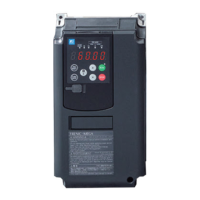
